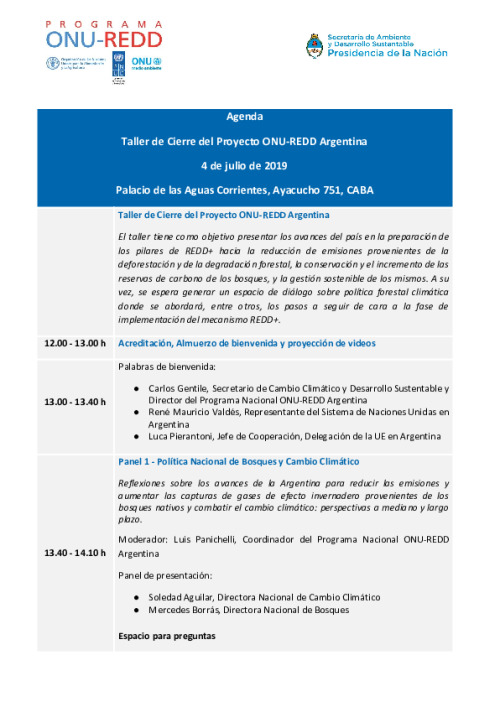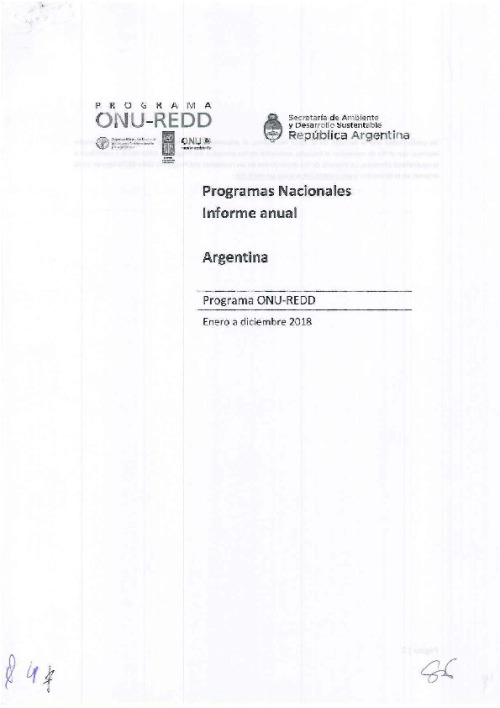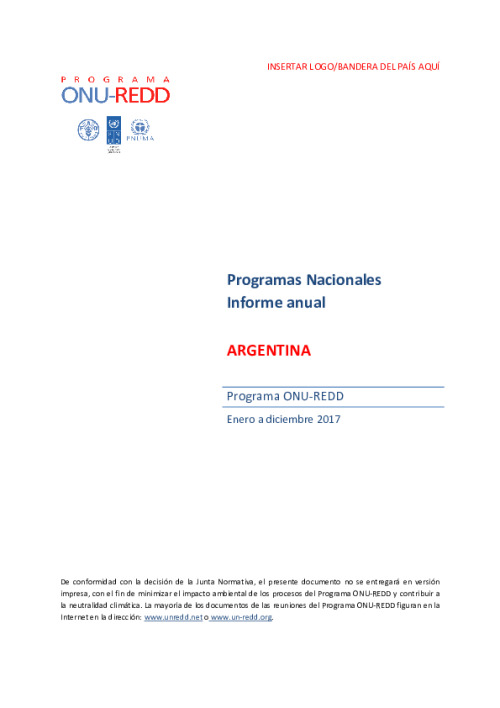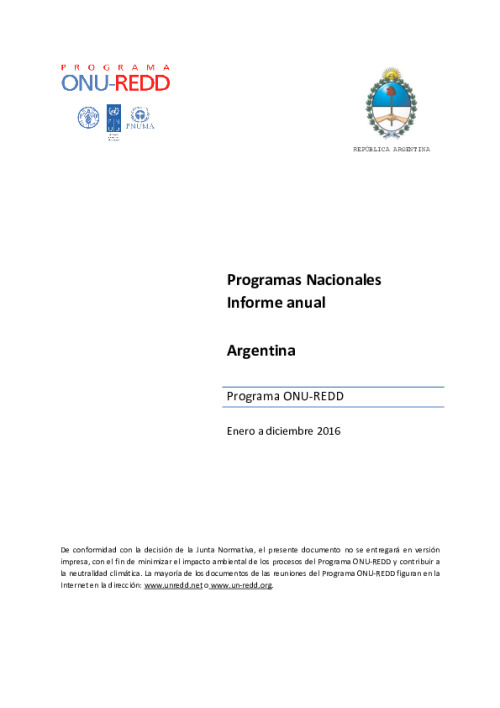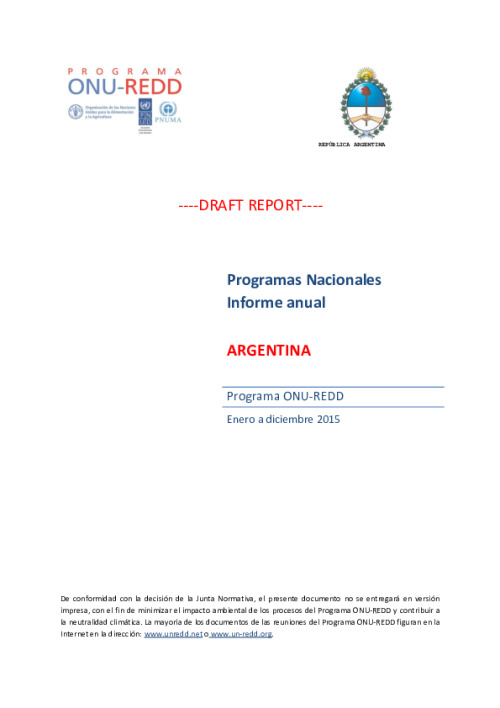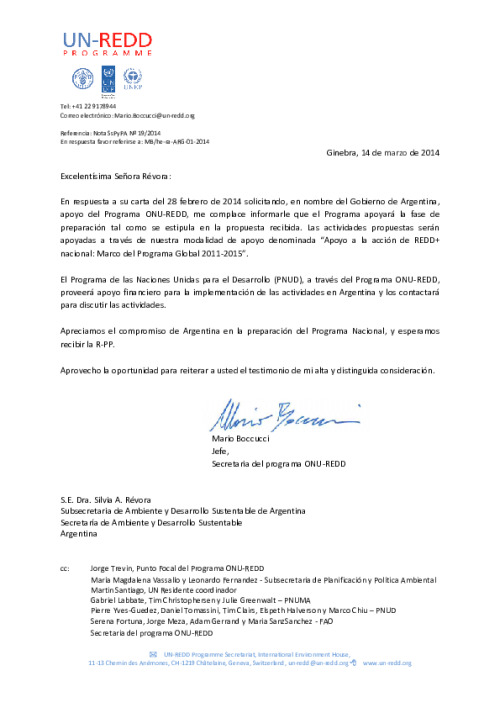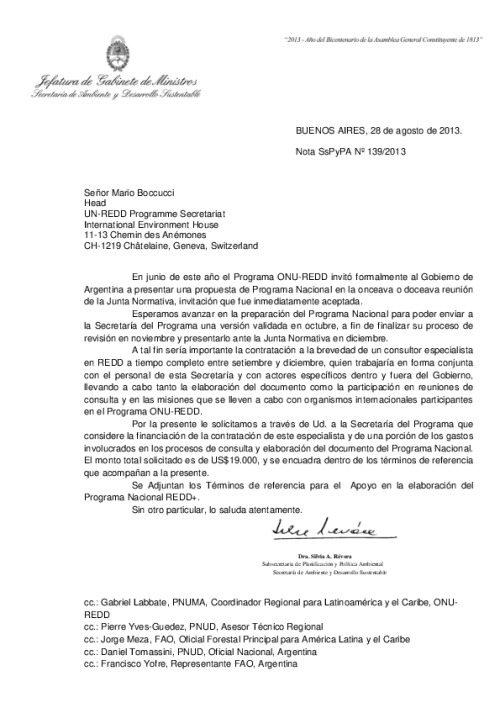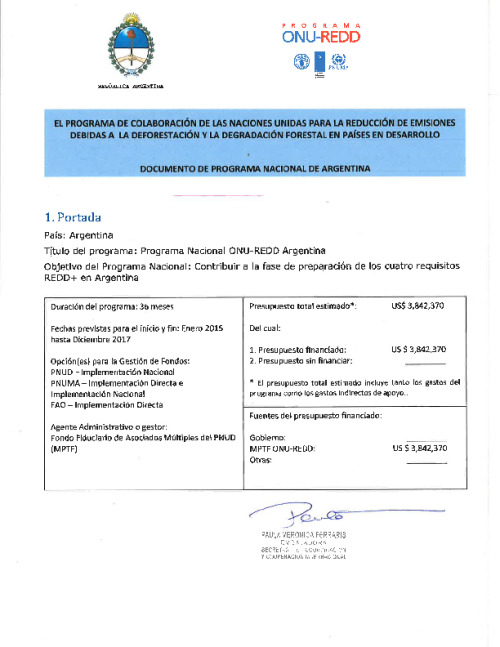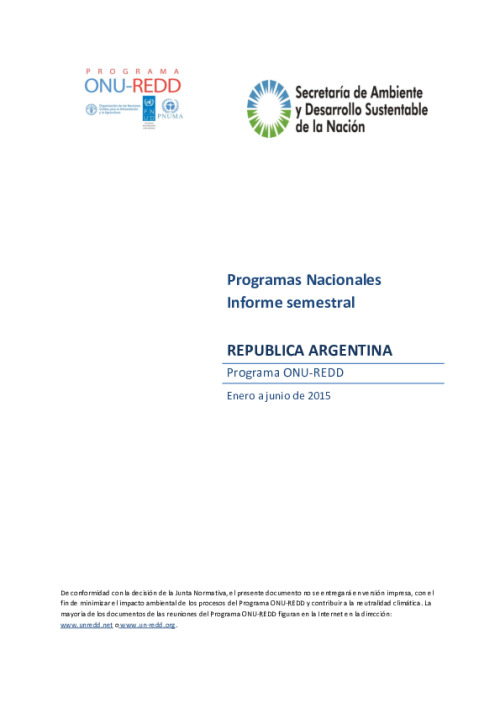National REDD+ Strategy/Action Plan (NS/AP): With UN-REDD support, Argentina submitted its National Action Plan on Forests and Climate Change (PANByCC) to the UNFCCC REDD+ Info Hub in December 2018. The plan is integrated into the country’s NDCs and sets an unconditional emissions reduction target of 27 MtCO2eq and a conditional goal of 81 MtCO2eq by 2030. Advances were made in identifying and mapping the social and environmental benefits of the plan. An analysis of potential non-carbon benefits derived from REDD+ implementation was carried out at the subnational scale. The main work areas of the plan have been shared with the public through audiovisuals prepared with the support of the National Programme.
Forest Reference Emissions Level / Forest Reference Level (FREL/FRL): The FREL was constructed and submitted to UNFCCC through the REDD+ Info Hub. UN-REDD support and the intensive technical work of national experts were key to achieving this milestone. The subnational scope of the FREL encompasses almost 90 per cent of Argentina’s forest lands and includes gross CO2 emissions due to deforestation from changes in the above- and below-ground biomass of native forests for the period 2002–2013, accounting for 101.141.848 tCO2. Its accuracy assessment is ongoing and will be annexed in 2019.
National Forest Monitoring Systems (NFMS): Technical cooperation between UN-REDD experts, the Ministry of Environment and Sustainable Development (SAyDS) and national scientific institutes boosted automation and new methodologies for the NFMS, taking into consideration five priority regions to be finalized by September 2019. The studies and methodology will enhance the capacity of the NFMS to meet increasing demands for national and international reporting, including on REDD+ activities. Analysis on including other carbon pools in the NFI is progressing. The NFMS web-dissemination platform was enhanced with tools to improve its functionality and add new data layers. Finally, the National Greenhouse Gas Inventory systematized the information and data for the AFOLU sector.
Safeguard Information System (SIS): A safeguards dialogue with participants from Chile, Colombia, Costa Rica, Ecuador and Mexico took place in March 2018, with a focus on sharing experiences and lessons learned to advance the countries’ national safeguards approaches. A draft of the national interpretation of safeguards, plans for the SIS design and an index of key content for the SOI on safeguards were reviewed with a range of stakeholders. Information needs for the SIS were identified, including how benefit and risk analyses and gender-related activities, processes and outputs can provide key inputs. The consolidated information will enable Argentina to submit the SOI to UNFCCC by December 2019.
Although Argentina is not receiving UN-REDD technical assistance for REDD+ implementation, the country is developing an implementation plan and a financial strategy with the support of the FCPF.
Alongside the implementation of the PANByCC, Argentina launched the ForestAr 2030 Initiative, whose objective is to accelerate investments in reforestation and reach the goal of 2 million hectares by 2030. The country also launched the National Forest Restoration Plan – framed in the Forest Law – which outlines a program for an initial period of six years (2018–2023) to reach the goal of 20,000 annual hectares of native forest restored by 2023. In addition, through the PANByCC, Argentina is seeking to implement subsidies for natural forest management plans and their preservation in order to meet the goals committed to in its NDC.
Argentina was granted a further no-cost extension to its national programme, until the end of December 2019, to account for implementation delays due to institutional reforms and other domestic factors external to the UN-REDD Programme, the national programme and the United Nations agencies.
Through the joint work with the National Direction on Climate Change, the National Direction on Forests and the related provincial governments, UN-REDD maintains an active partnership with the Climate Change and Forest Commission of the Federal Council for the Environment, the Ministry of Environment and Sustainable Development, the FCPF programme, the ForestAr 2030 Initiative and various research and scientific institutions, as well as non-governmental organizations.
